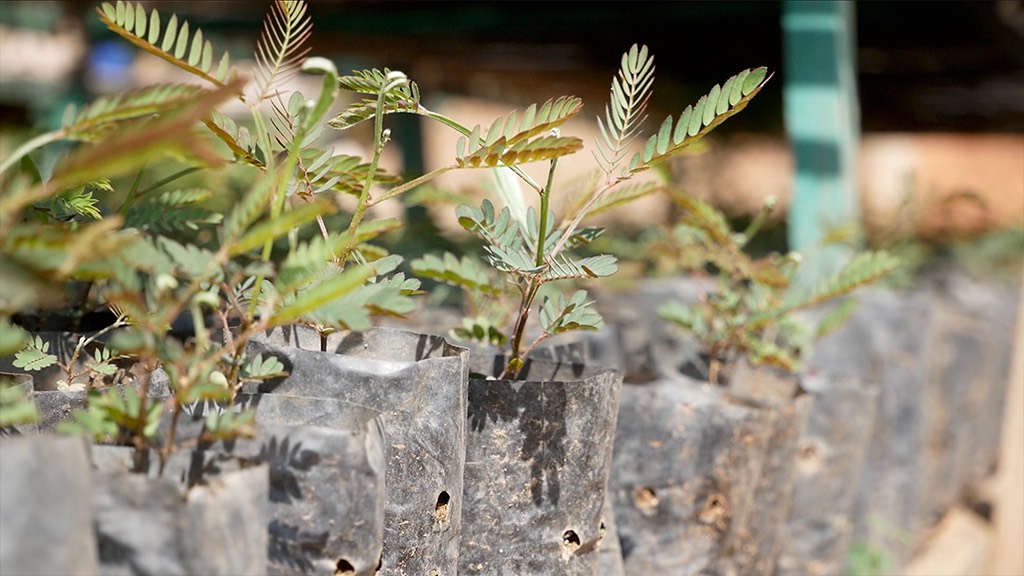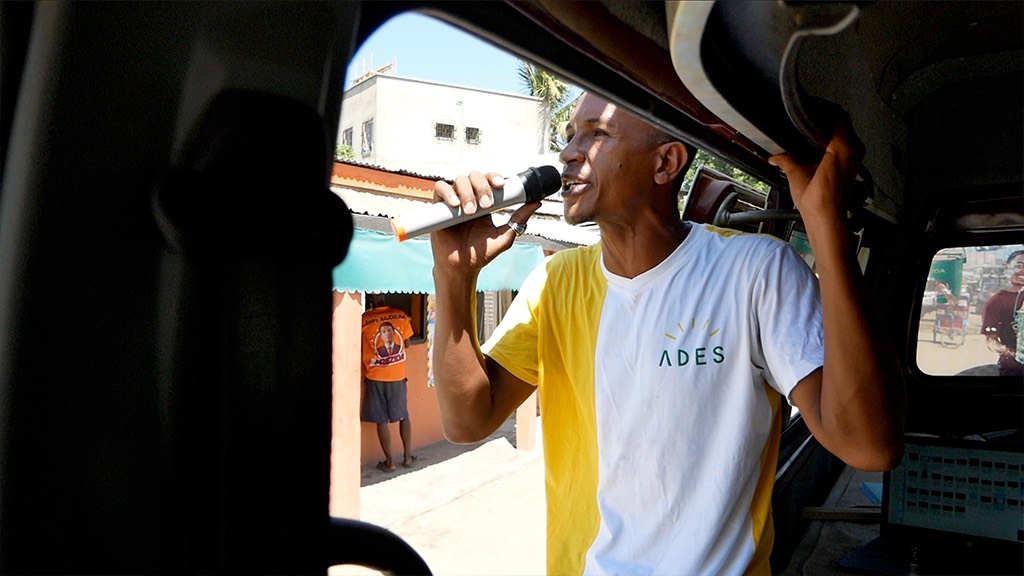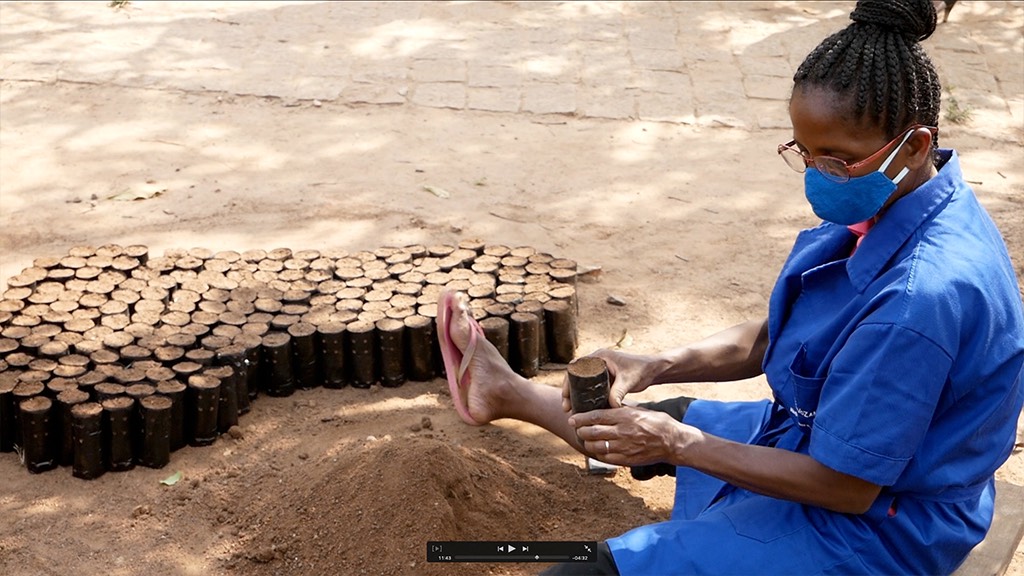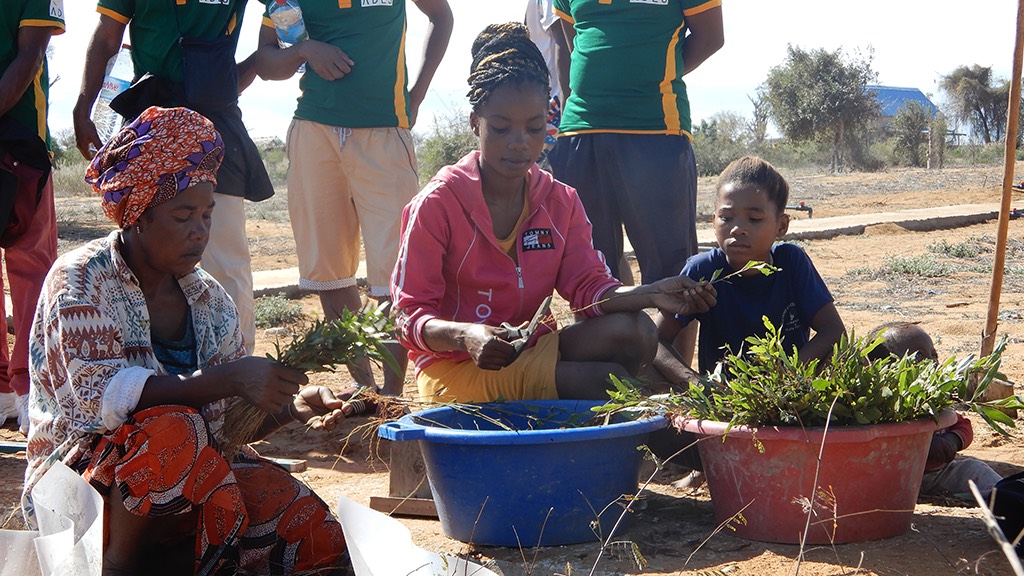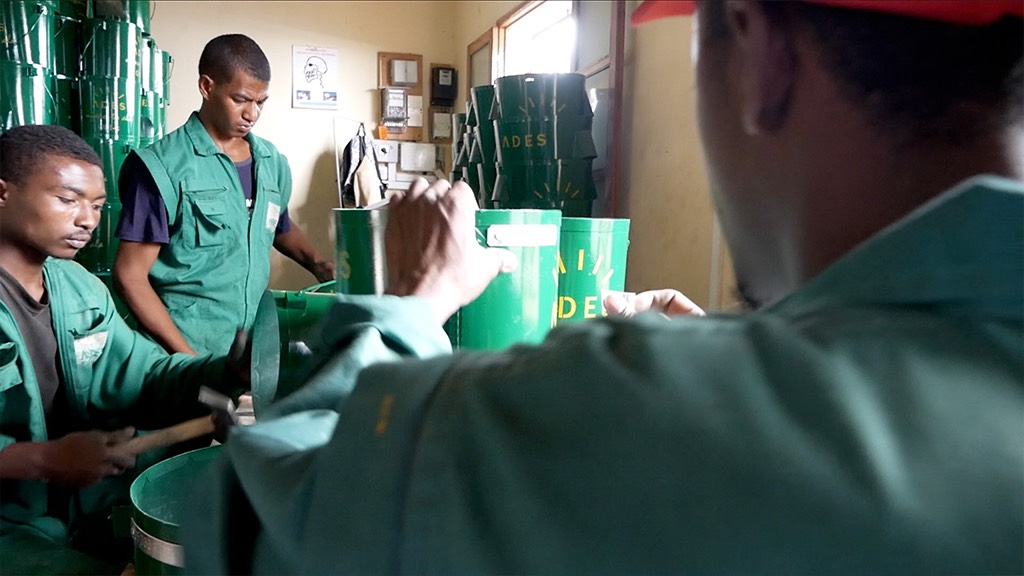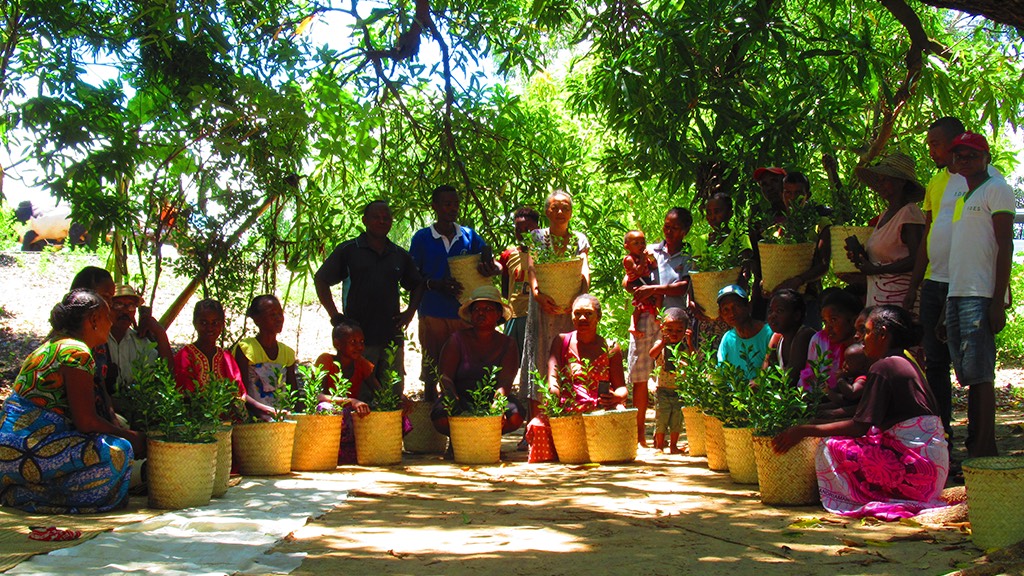Putting the Heart in Hearth: Energy-Efficient Stoves Protect the Climate, Clear a Path Out of Poverty
In 2001, ADES founder Regula Ochsner embarked on a mission to combat deforestation in the vast ecologically-diverse African nation of Madagascar. The second largest island in the world, Madagascar is home to more than 27 million people and more biodiversity than the entire African continent. Approximately 95 percent of Madagascar’s reptiles, 89 percent of its plant life, and 92 percent of its mammals exist nowhere else on Earth, according to the World Wildlife Foundation.
But this magnificent, underdeveloped country is plagued by widespread forest-clearing for firewood and charcoal, as well as unsustainable agriculture practices. These harvested natural resources are used to fuel traditional hearths across the island, where meals are made and communities gather. The pollution caused by these activities began threatening the island’s habitats—critical for supporting all of its inhabitants— a problem further exacerbated by global climate change impacts.
ADES had an idea: develop a simple but creative — and highly effective — strategy for combating the root issue of deforestation by producing and distributing solar-powered, energy-saving cookers. Solar cookers reduce the amount of wood and charcoal fuel needed to power them, and the carbon footprint from burning these resources, compared to traditional fire-cooking hearths. ADES’ cookstoves save between 50 to 70 percent of fuel per day, per family — and saves a family of five nearly 600 hours per year by reducing the time needed to collect wood to cook meals.
Today, the thriving social enterprise’s strategy offers a multi-tiered approach to fighting poverty and protecting fragile ecologies, while empowering the island’s citizens to become part of the solution to the dire issues facing their tribes, communities, livelihoods, and homes.
“I imagine ADES like a house,” says Managing Director Rita Bachmann. “We protect the forest; this is the roof of that house. And then we’ve got three pillars. Selling and producing cookstoves, that’s pillar number one, probably the widest of all of them. Pillar number two is education. That’s where child- and adult education falls. And the third one is reforestation.”
In addition to working with locals to produce and sell cookstoves (planting two trees for every stove sold), ADES partners with local and private primary schools to offer programming to more than 90,000 students and teachers. The programs encourage environmental stewardship by visiting forest reserves, educating kids about the environment, and teaching healthy nutrition and cooking techniques.
“Early childhood environmental education is the key to ensure future generations understand the importance of sustaining the forests around them. A lot of these children never get a real outing to see what we’re talking about and it’s really important to us,” says Bachmann. “We’ve been in Madagascar for the last 20 years. And we’re not just a project with a project timeline. We are invested in Madagascar.”
ADES investments in both the social and environmental health of Madagascar’s communities show increased returns for the community. During the pandemic, ADES took an innovative approach to job creation and product distribution, launching three mobile sales and education branches. The initiative, ADES on Wheels, reaches remote villages, offering products and training opportunities.
“On some of the evenings when we show environmental movies, we have up to 1,000 people watching! In addition, ADES employees recruit and train independent resellers in the villages to sell ADES stoves, as an opportunity for individuals to make money as a first or second job,” says Bachmann.
From an internal perspective, ADES commits to manufacturing its cookers and ovens in Madagascar, which further supports the local economy in a sustainable way. Affordable product pricing is made possible through donations and carbon credits. The organization also pays fair wages, offers social benefits, and pays school fees of all children of its permanent employees—all of which are central to their values as a B-Corporation.
Committed volunteers are another key to ADES’ success. Josh Martin, a volunteer fundraiser for ADES, says his interest in Madagascar began in childhood, when he learned about the country’s biodiversity. When he and his wife visited the country, he knew he wanted to get involved with ADES.
“ADES provides the resources to reduce the demand for wood as a cooking fuel and believes that partnerships across the whole supply chain are necessary to have long-term success in Madagascar.” says Martin.
ADES plans to sell 250,000 cookstoves yearly by 2030, resulting in 1.5 million tons of CO2 emissions saved yearly. To learn more about this mission-based .ORG, please visit https://ades-solaire.org/en.

